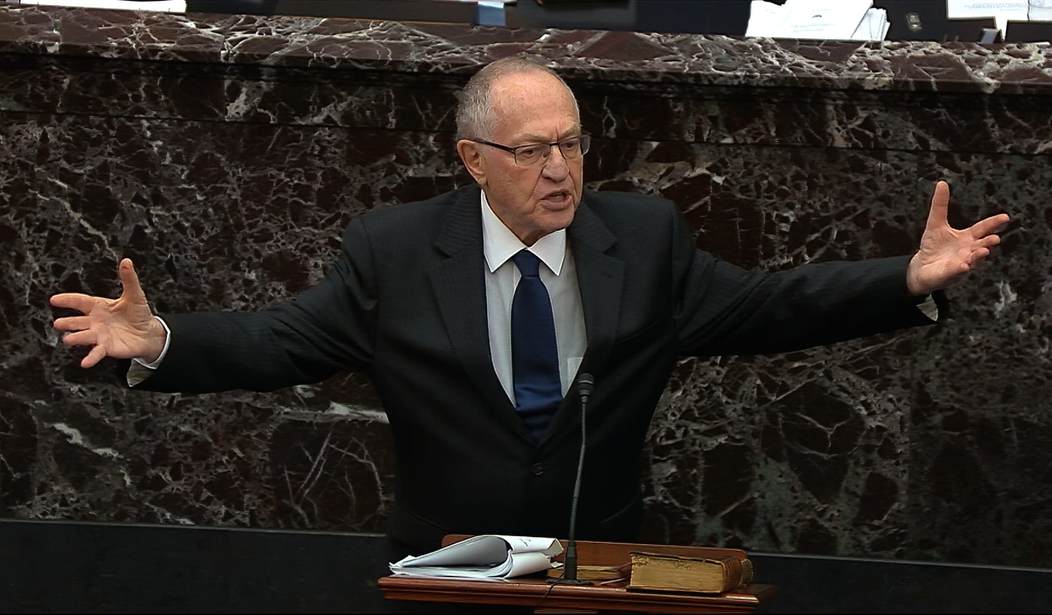Retired Harvard law professor Alan Dershowitz gave what may be the most persuasive case against impeaching President Donald Trump while in the well of the U.S. Senate on Monday evening.
Speaking as a representative of Trump’s defense team, the lifelong liberal Democrat urged senators to not “let the feelings about one man, strong as they may be, cause irreparable damage” to the fate of other presidents. “Passion and fears of the moment must not blind us,” he pleaded.
Giving a clinic on the history of impeachment in a matter-of-fact and understandable way, Dershowitz explained the derivation of the idea of impeachment and explained that it was to have been the breaking of a defined, limited law and not an amorphous and generalized idea of bad conduct. “Dishonesty is a sin and not a crime,” he told the lawmakers.
Before Dershowitz took the lectern before the Senate, there was considerable debate about an obviously strategically-timed leak of information from former National Security Adviser John Bolton’s unpublished book.
Dershowitz had an answer to the New York Times’s leak in which Bolton believed the worst about President Trump’s delay of aid to Ukraine, saying it was “inconceivable” to the founders that a quid pro quo was an impeachable offense.
Alan Dershowitz before the Senate today:
"It follows from this that if a president, any president were to have done what the Times reported about the content of the Bolton manuscript, that would not constitute an impeachable offense." pic.twitter.com/Zeg7oL7Lyt
— Scott Morefield (@SKMorefield) January 28, 2020
The professor took on the issue head-on:
Consider the following hypothetical case that is in our news today. The Israeli Prime Minister comes to the United States for meetings, let’s assume that a Democratic president tells Israel that foreign aid authorized by Congress will not be sent, or an Oval Office meeting will not be scheduled unless the Israelis stop building settlements. Quid pro quo. I might disapprove of such a quid pro quo demand on policy grounds, but it would not constitute an abuse of power. Quid pro quo alone is not a basis of abuse of power. It’s part of the way that foreign policy has been operated by presidents since the beginning of time. The claim that foreign policy abuses can be deemed abuses of power based on subjective opinions about mixed or sole motives – that the president was interested only in helping himself – demonstrate the dangers of employing the vague, subjective and politically malleable phrase abuse of power as a constitutionally permissible criteria for the removal of a president.
Now it follows that if a president – any president – were to demand a quid pro quo as a condition to sending aid to a foreign country, obviously a highly disputed matter in this case, that would not by itself constitute an abuse of power.
Let me repeat: nothing in the Bolton revelations – even if true – would rise to the level of an abuse of power or impeachable offense. That is clear from the history. That is clear from the language of the Constitution – you cannot turn conduct that is not impeachable into impeachable conduct simply by using words like “quid pro quo” and “personal benefit.”
It is inconceivable that the framers would have intended such politically loaded and promiscuously deployed a term as “abuse of power” and weaponized as a tool of impeachment.
Dershowitz lectured the senators that given the amorphous Democrat House Manager’s definition of impeachable offense, under which they’re going after Trump, that presidents from George Washington to George H.W. Bush to Obama could have been impeached.










Join the conversation as a VIP Member